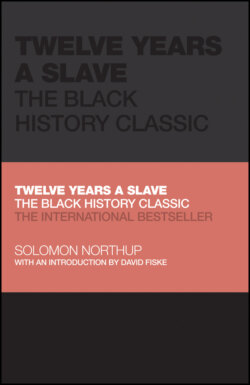Читать книгу Twelve Years a Slave - Solomon Northup - Страница 11
LIFE PRE-SLAVERY
ОглавлениеPrior to his kidnapping, Northup was far from being an anti-slavery activist. In discussing his time in Saratoga Springs, he makes mention of slaves he encountered who had accompanied their Southern masters to that resort town. He was sometimes asked for advice on how they could escape their masters. In his first chapter, Northup tells us that “I could not comprehend the justice of that law, or that religion, which upholds or recognizes the principle of Slavery; and never once, I am proud to say, did I fail to counsel any one who came to me, to watch his opportunity, and strike for freedom.”
Generally, Northup seems to have been occupied with earning enough money to support his family. Living in a resort town, work was harder to find in the winter months, and his was probably a hardscrabble existence at times. There would not have been much time or energy left to agitate against slavery.
The life of a free black person in the North was far from ideal. In New York State, there had been a requirement that, in order for any man to vote – regardless of his color – he must own a certain amount of property. In 1822, the state's constitution was amended and the property ownership criterion was removed for white voters – but not for blacks. (Hence the mention in Northup's first chapter that his father, being a property owner, had been entitled to vote.) There were many other limitations on African Americans, but they tended to be social rather than legal. Northup includes a few digs at these in his book. In Chapter I, he points out the respect his father had earned, despite having been a slave “and laboring under the disadvantages to which my unfortunate race is subjected …” Mintus had pursued farming, rather than having sought “employment in those more menial positions, which seem to be especially allotted to the children of Africa.”
